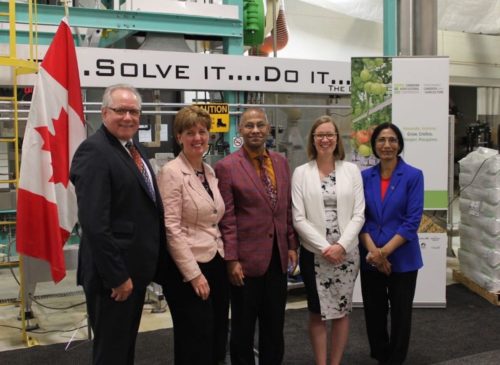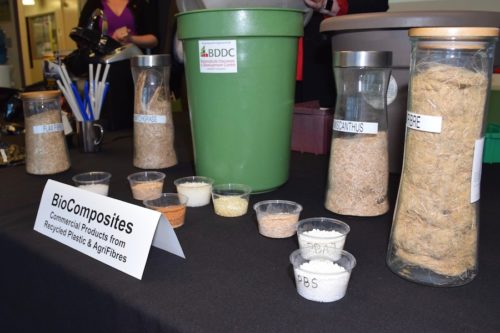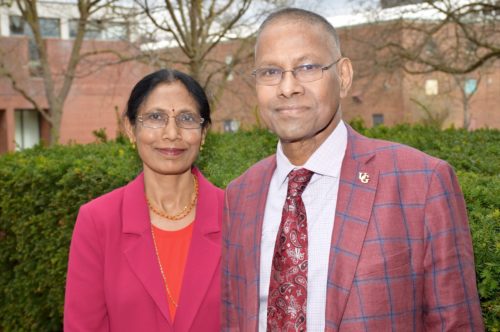
A University of Guelph research project to turn co-products from ethanol production into new products has been awarded $1 million from Agriculture and Agri-Food Canada (AAFC) and three industry partners.
The five-year project, called the Bioproducts Agri-Science Cluster, will receive $700,000 from AAFC’s AgriScience Program and $300,000 from IGPC Ethanol, Competitive Green Technologies and Greenfield Global.
The funding, announced Thursday, is part of a broader $11.2-million federal investment in the bioproducts cluster under the Canadian Agricultural Partnership, led by Bioindustrial Innovation Canada.
The U of G component will be led by Amar Mohanty, a professor in the Department of Plant Agriculture and director of U of G’s Bioproducts Discovery and Development Centre (BDDC).

Engineering professor Manjusri Misra is a project co-leader and a researcher with the centre. She holds a cross-appointment in the Department of Plant Agriculture.
“We are delighted to be part of this exciting bioproducts cluster network connecting industry, academia and government organizations,” said Mohanty, who holds the Premier’s Research Chair in Biomaterials and Transportation.
“Working together, we aim to design and engineer new value-added green materials. These new applications will provide the corn ethanol industry with an opportunity to diversify their product lines.”
Working with by-products of corn ethanol such as corn oil, distiller’s dried grains with solubles and carbon dioxide, BDDC researchers intend to develop eco-friendly plasticizer, biodegradable plastics and sustainable biocomposites for green packaging and eco-friendly consumer products for industrial uses.

As green substitutes for petroleum-based plastics, these new products would help to meet growing demand for sustainable materials.
“Creating a sustainable economy is one of the most important challenges of our time,” said Malcolm Campbell, U of G vice-president (research). “U of G researchers are at the forefront of making discoveries and inventing novel products and processes to power the bio-economy — a cornerstone for economic sustainability.”
The new funding will flow through Bioindustrial Innovation Canada, a non-profit business accelerator based in Sarnia, Ont., that advises developers of sustainable technologies.
“This important funding will help drive U of G’s expertise in the development of bio-based materials, and greatly assist our research to pinpoint areas where agricultural waste is transformed into new, in-demand products,” Campbell added.
Misra said the team aims to develop a complete production model from raw material supply to product design and industrial scale-up. She said the model will benefit local economies by creating jobs in chemical engineering, green marketing and skilled trades.